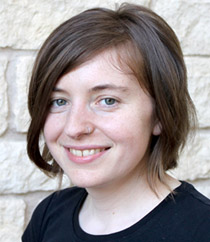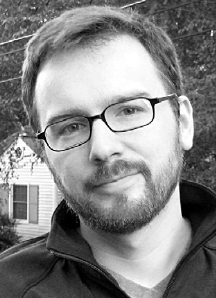The Digital Assembly Spring 2015 Workshop
Dauer Hall, Rm. 215
Thursday, February 19th, 4-7
Friday, February 20th, 9-12
The Digital Assembly’s Spring 2015 workshop introduces contemporary approaches to studying digital games and demos how to design and modify game hardware and software.
This workshop is free and open to the public, featuring presentations by:
 Professor Anastasia Salter University of Central Florida | Beyond the Bridgekeeper: Exploring Narrative Games on the MarginsOver the past few years, the rise of new platforms has started to alter our perception of games and gamers. While the AAA game industry is perhaps more inaccessible and homogeneous than ever before, the future of games and narratives has moved out of the hands of those gatekeepers. The construction of new forms of interactive storytelling is already well underway: it is happening on the edges of the mainstream gaming industry and in the spaces between media, on the foundations set by classic games using new and increasingly accessible tools for personal game development. Along these margins, convergent storytelling allows for playful reading and reading becomes a strategy of play. Anastasia Salter's presentation will explore these interactions between storytellers and readers, between programmers and creators, and among fans turned world-builders which are transforming our definitions of games. Anastasia Salter is an Assistant Professor of Digital Media at the University of Central Florida. She is the author of What is Your Quest? From Adventure Games to Interactive Books (University of Iowa Press, 2014) and co-author of Flash: Building the Interactive Web (MIT Press, 2014). She writes for ProfHacker, a blog on technology and pedagogy hosted by the Chronicle of Higher Education, and is a board member and former chair of the North American Simulation and Gaming Association and a member of the THATCamp Council. |
 Professor Stephanie Boluk Pratt Institute | Metagaming: Videogames and the Practice of PlayMetagames are games about games. They are games we play in, on, around, and through other games. From the simple decision to press start, pass the controller, or even purchase a piece of software to the most elaborate player-created constraints and popular strategies, metagames are not simply a label for the way we play but, as Richard Garfield writes, “a game without a metagame is like an idealized object in physics. It may be a useful construct but it doesn't really exist.” And although there is a long history of metagaming in strategy games and tabletop roleplaying, over the past decade and with the rise of social media and sharing services like Steam, YouTube, and Twitch, the term metagame is increasingly used to describe the community practices within, around, outside, and about videogames. From the retro graphics of indie games to the adopted constraints of speedrunning and from the ever-shifting strategies of e-sports to Internet espionage that takes place outside massively multiplayer online games, metagaming has become a dominant form of play, a game design paradigm, and a way of life not only occurring around videogames but all forms of digital technology. Following a discussion of the concept of metagaming, Stephanie Boluk will explore one of the most powerful cases of play as a critical practice: total control hacking. From memory manipulation glitches to arbitrary code execution, total control hackers transform videogames into development environments and play into a form of programming. Stephanie Boluk is an assistant professor teaching in the Graduate Program of Media Studies at Pratt Institute |
 Patrick LeMieux Duke University | Making a Metagame: Introduction to ROM Hacking and Hardware ReproductionFollowing a discussion of the concept of metagames--the games we play in, on, around, and through other games--Patrick LeMieux's hands-on workshop explores the practical, material, and historical implications of ROM hacking and hardware reproduction. Beginning with a brief introduction to low-level machine code and the relationship between analog electronics and digital information, in the first half of the workshop participants will modify a disassembled version of Nintendo’s Super Mario Bros. in order to make an original, albeit simple, ROM hack. After testing each new metagame on an emulator, the second half of the workshop will be dedicated to making these Mario mods playable on original hardware. Participants will first burn each game onto an EPROM chip using a Willem Programmer. Then, by removing the factory soldered ROM chips and adding EPROM sockets to vintage Nintendo cartridges we will make prototype boards for testing our ROM hacks on the Nintendo Entertainment System. Patrick LeMieux is an artist, game designer, and Ph.D. candidate in the Department of Art, Art History, and Visual Studies at Duke University. |
Refreshments will be provided. For more information, visit the Digital Assembly website.